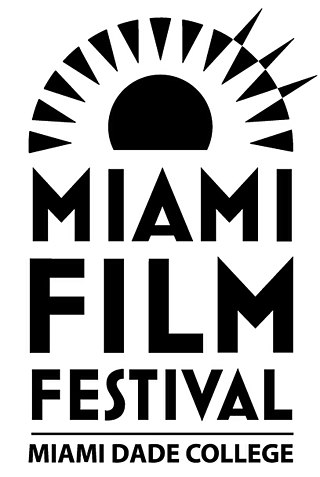
The Federalist Society for Law and Public Policy Studies (FedSoc) is an American conservative and libertarian legal organization that advocates for a textualist and originalist interpretation of the U.S. Constitution. Headquartered in Washington, D.C., it has chapters at more than 200 law schools and features student, lawyer, and faculty divisions; the lawyers division comprises more than 70,000 practicing attorneys in ninety cities. Through speaking events, lectures, and other activities, it provides a forum for legal experts of opposing views to interact with members of the legal profession, the judiciary, and the legal academy. It is one of the most influential legal organizations in the United States.
The Supreme Court of the State of New York is the trial-level court of general jurisdiction in the New York State Unified Court System. It is vested with unlimited civil and criminal jurisdiction, although in many counties outside New York City it acts primarily as a court of civil jurisdiction, with most criminal matters handled in County Court.
An associate justice or associate judge is a judicial panel member who is not the chief justice in some jurisdictions. The title "Associate Justice" is used for members of the Supreme Court of the United States and some state supreme courts, and for some other courts in Commonwealth of Nations countries, as well as for members of the Supreme Court of the Federated States of Micronesia, a former United States Trust Territory. In other common law jurisdictions, the equivalent position is called "Puisne Justice".

The Oregon Supreme Court (OSC) is the highest state court in the U.S. state of Oregon. The only court that may reverse or modify a decision of the Oregon Supreme Court is the Supreme Court of the United States. The OSC holds court at the Oregon Supreme Court Building in Salem, Oregon, near the capitol building on State Street. The building was finished in 1914 and also houses the state's law library, while the courtroom is also used by the Oregon Court of Appeals.
The federal judiciary of the United States is one of the three branches of the federal government of the United States organized under the United States Constitution and laws of the federal government. The U.S. federal judiciary consists primarily of the U.S. Supreme Court, the U.S. Courts of Appeals, and the U.S. District Courts. It also includes a variety of other lesser federal tribunals.

The Supreme Court of Missouri is the highest court in the state of Missouri. It was established in 1820 and is located at 207 West High Street in Jefferson City, Missouri. Missouri voters have approved changes in the state's constitution to give the Supreme Court exclusive jurisdiction – the sole legal power to hear – over five types of cases on appeal. Pursuant to Article V, Section 3 of the Missouri Constitution, these cases involve:

The Kentucky Supreme Court is the state supreme court of the U.S. state of Kentucky. Prior to its creation by constitutional amendment in 1975, the Kentucky Court of Appeals was the only appellate court in Kentucky. The Kentucky Court of Appeals is now Kentucky's intermediate appellate court.

The Legal Information Institute (LII) is a non-profit public service of Cornell Law School that provides no-cost access to current American and international legal research sources online. Founded in 1992 by Peter Martin and Tom Bruce, LII was the first law site developed on the internet. LII electronically publishes on the Web the U.S. Code, U.S. Supreme Court opinions, Uniform Commercial Code, the US Code of Federal Regulations, several Federal Rules, and a variety of other American primary law materials. LII also provides access to other national and international sources, such as treaties and United Nations materials. According to its website, the LII serves over 40 million unique visitors per year.

Chédiak–Higashi syndrome (CHS) is a rare autosomal recessive disorder that arises from a mutation of a lysosomal trafficking regulator protein, which leads to a decrease in phagocytosis. The decrease in phagocytosis results in recurrent pyogenic infections, albinism, and peripheral neuropathy.

The Oyez Project is an unofficial online multimedia archive website for the Supreme Court of the United States. It was initiated by the Illinois Institute of Technology's Chicago-Kent College of Law and now also sponsored by Cornell Law School Legal Information Institute and Justia.
Lysosomal trafficking regulator is a vesicular transport protein associated with Chédiak–Higashi syndrome.

As established and defined by the Montana Constitution, the government of the State of Montana is composed of three branches, the Executive, Judicial, and Legislative. The powers of initiative and referendum are reserved for the citizens of Montana.

The Miami Film Festival is an annual film festival in Miami, Florida, that showcases independent American and international films with a special focus on Ibero-American films. The competitive film festival draws international and local attention, with films being showcased in several venues across the city center and includes features, documentaries, short films, and retrospectives. The programming is selected so as to include: premiers for both established film-makers and up-and-commers, socially relevant films, multidisciplinary and experimental films, and films showcasing international musicians. The stated mission of the Miami Film Festival is to bridge cultural understanding and encourage artistic development.

There are about 53,000 to 75,000 Lebanese Uruguayans, or Uruguayans of Lebanese origin. The Lebanese are one of the larger non-European communities, though still not as large a group as most European groups. Relations between Uruguay and Lebanon have always been close.

Edna Arbel is an Israeli lawyer who was a justice on the Supreme Court of Israel from May 2004 to June 2014. She is a native of Jerusalem.
Almir Santana Chediak was a Brazilian musical producer, entrepreneur, publisher, guitarist, teacher, composer, writer and researcher.

Braz Chediak is a Brazilian actor, screenwriter and filmmaker.
Enrique Chediak is an Ecuadorian cinematographer.
Susan Larson Christensen is the chief justice of the Iowa Supreme Court.












